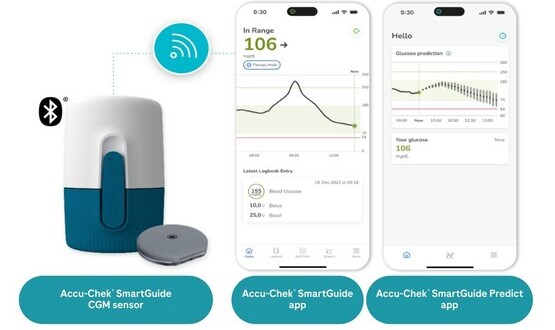Nottingham telehealth pilot underway
- 6 June 2007
Nottingham City Primary Care Trust has begun piloting a new telehealth scheme to help patients with long term conditions monitor their health and help them better manage their conditions at home.
The PCT has invested £30,000 in ten telehealth units from Tunstall which provide health checks around the clock including measurements for blood pressure, pulse rate, oxygen levels in the blood, and overall body weight.
Shirley Smith, long-term conditions programme manager at the trust, told E-Health Insider Primary Care: “We began this pilot as part of our long terms condition strategy in March as telehealth is backed by a great evidence base that shows that it is actually quite effective. We wanted to add it to out toolkit to keep people at home and encourage self-management by patients, giving them more awareness and more confidence.”
The equipment measures vital signs and transmits the readings through a virtual server network to a database accessed by community matrons working from the new Clifton Cornerstone centre, who watch out for danger signs of deteriation in a patient’s state of health.
Smith added: “The equipment will empower people to look after themselves better and will help them recognise the warning signs when their condition worsens. They are able to contact their community matron who can, depending on the levels being recorded, ensure that an early and appropriate intervention is made which can help their patients avoid a trip to hospital or shorten the time that they need to be in hospital.”
Patients are selected to pilot the units by community matrons, and the trust has already seen benefits from patients using the devices. In the first week, they were able to help prevent a patient who had been in and out of hospital regularly from needing to visit the hospital for pneumonia treatment.
Community matrons are in favour of the idea and are impressed by the reassurance that it provides to potentially vulnerable patients.
One matron, Patricia Mather, said: “It is only early days but already we can see the effects that the telehealth scheme is having. Patients are saying they are so wonderful, they provide reassurance and mean that we can pick up on any worsening of their condition as quickly as possible.”
The pilot is expected to last for another four to six months with a plan for roll-out by the end of the session.
Smith said: “We definitely want to roll it out further, but at the moment there is a lot to consider. It’s not cheap and we have to remember that patients can’t have it all the time. We must get a plan in place for when we deploy it and for what sort of timescale we offer it to patients for. There is a lot to consider before we roll it out completely.”
The scheme was developed to improve the patient experience and provide better local care than otherwise would have been available. Patients have already told of the benefits they are receiving from it.
Vivian Butler, who has diabetes and chronic obstructive pulmonary disorder (COPD) said: “The equipment arrived on the Friday and by the following Monday it had probably saved me from going into intensive care. It picked up some signs that I was having renal failure and I did go to hospital but because it was spotted early I was able to return home on the Tuesday.”
A Department of Health spokesperson said: “This investment will help enable the community matrons to be effective in reducing emergency bed days for patients on their caseloads, alongside other areas of community development service such as step-up intermediate care, rapid access home care and out-of-hours services.”
Links
Tunstall www.tunstall.co.uk




